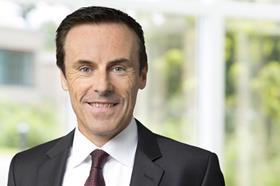
Bayer has used its Future of Farming 2017 event to relay the message that it expects long-term trends impacting the global agricultural sector to remain unchanged.
The event, which brought together thought leaders and stakeholders from across the agricultural industry, highlighted the need for various groups - including industry, government, academic and NGO representatives and from both the public and private sectors - to cooperate to make the world’s food system more sustainable.
'Despite the current market volatility, our Crop Science business is well positioned to fulfil future customer, market and societal needs,' said Liam Condon, Bayer management board member and president of the Crop Science Division. 'The global seed and crop protection market remains volatile in 2017 after a weak prior year.'
However, high population growth, changing consumption patterns and increasing consumer demand for sustainably produced food will have a positive impact on food production, global agricultural trade and ultimately on farm income, Condon outlined.
'Those factors combined with the steadily growing global demand for feed and biofuel feedstocks support a long-term increase in demand that will drive our business,' he noted.
Focusing in his speech on sustainable agriculture, Condon reaffirmed the commitment of the Crop Science Division to investing in innovation and developing customised agronomic solutions for farmers that address their individual needs and challenges.
In this context, Condon emphasised that the proposed acquisition of Monsanto presented 'a tremendous opportunity' to positively shape the future of farming.
'It is our responsibility to ensure that innovation is made available to farmers large and small, all over the world,' he said. 'Only then can we make a meaningful contribution to ensuring a sustainable world food system.'
Regarding the process and time frame of the Monsanto acquisition, Condon said that the company was 'making progress'.
He also addressed the company’s efforts in the field of digital technologies. 'We are committed to investing at least €200m in our Digital Farming business between 2015 and 2020,' he confirmed. 'Innovative digital farming technologies help farmers big and small grow healthier crops more efficiently and more sustainably.'
During his keynote address, Condon was joined by Adrian Percy, global head of research and development for the Crop Science Division, who shared more information about Bayer’s R&D pipeline and investments.
'At Crop Science, we’ve been investing approximately €1bn annually in research and development to bring new products to the market to address the major challenges affecting farmers worldwide,' Percy pointed out, outlining that the current Crop Science R&D pipeline had 15 active ingredients and traits/trait combinations to be launched from 2017 to 2020.
The integrated pipeline also contains more than 100 life-cycle management projects as well as several hundred new seed varieties in vegetable and broad acre crops.



